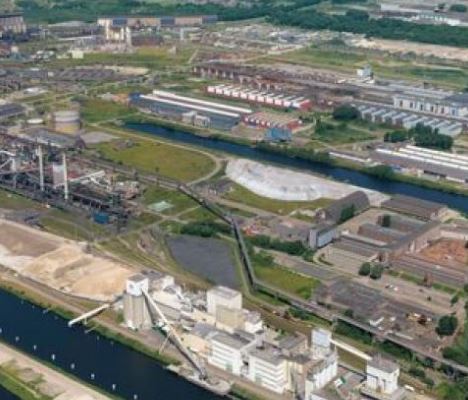Tata Steel Nederland: Sustainability report for the financial year 2022/23
by David Fleschen

Tata Steel Nederland has published its sustainability report for the financial year 2022/23. In it, the steel company looks back at the steps it has taken over the past year to improve its sustainability and further reduce impacts on the climate and immediate environment.
"First and foremost, I am proud of what our employees have achieved in the past year," says Hans van den Berg, CEO of Tata Steel Nederland. "Our steel is of high quality, highly sought after and of value to our society. At the same time, we are also a good employer and one of the most sustainable steel producers in the world."
"In the same breath, however, we are also criticised," van den Berg continues. "Social standards have changed and we feel a strong responsibility to produce steel in a more sustainable way. With minimal impact on climate, environment and surroundings."
He continues, "We are working hard to transform our company into a greener, circular steel producer. This is a radical step that is unparalleled in the Netherlands. In this way we are helping to shape the Dutch industry and economy of the future. This is important for our employees, our environment and society as a whole."
The Sustainability Report provides insight into issues that are important to Tata Steel in the Netherlands and its stakeholders. This includes not only the company's sustainability strategy, but also improving the sustainability of products and engaging in the well-being of employees, partners and stakeholders in the immediate environment as well as minimising impacts on the environment.
Decarbonisation and sustainability - some key developments
- CO2 emissions. Tata Steel Nederland is responsible for direct and indirect emissions totalling 15.01 million tonnes of CO2. The so-called Scope 3 emissions amount to 3.81 million tonnes (26 percent of total CO2 emissions). To reduce these indirect CO2 emissions, Tata Steel is focusing in particular on emissions from purchased goods and fuels, as well as logistics to the company and to customers. This includes, for example, switching to trucks powered by HVO100 diesel and electric trucks. Efforts are also being made to make sea transport more sustainable.
- On the way to green steel production. Every effort is being made to produce green steel in IJmuiden, the Netherlands, with the first plants by 2030. To this end, a large part of the production and the plant site will be transformed. After successful commissioning of the new facilities, one blast furnace and coke and gas plant 2 will be closed first. The climate targets remain unchanged: 35 to 40 percent CO2 reduction by 2030 and CO2-neutral steel production by 2045.
- Two sites already CO2-neutral. By 2030, all Tata Steel Nederland's downstream sites are to be CO2-neutral. Eight of the 16 sites are expected to achieve this status before 2025. The sites in Naantali (Finland) and Halmstad (Sweden) have been CO2-neutral since last year. The Geldermalsen plant in the Netherlands is expected to follow shortly.
- Sustainable procurement. In order to procure raw materials as responsibly as possible, Tata Steel Nederland, together with its suppliers, maps the supply chain all the way to the mines. Based on initial findings, the responsible procurement policy has been adapted. It also already anticipates new legislation and certifications. The company is also participating in a joint project to improve health and safety conditions at mines in Peru and Bolivia.
Source and Photo: Tata Steel Nederland

